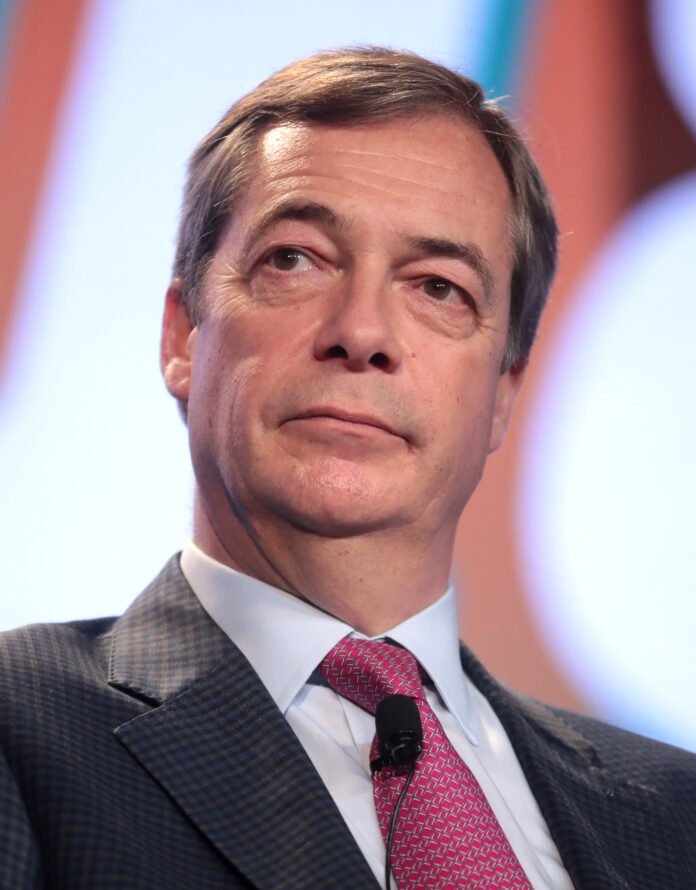Nigel Farage, the leader of Reform UK, is repositioning himself yet again—this time, as a champion of the working class. In a surprising move, he has called for the nationalisation of the steel industry and declared solidarity with trade unionists, citing a tenuous link from his past in the “metals business”—a phrase that conveniently lumps together his stint as a City trader and a promotional gig for a bullion firm.
It’s a stretch to picture Farage as a working-class hero, given his past record of opposing workers’ rights, such as his votes against banning fire-and-rehire practices and zero-hour contracts. But the pivot is deliberate. His aim is to tap into disillusioned Labour voters in traditional heartlands ahead of the 1 May local elections.
A Strategy That Threatens Both Labour and Tories
Farage’s visit to a County Durham working men’s club was more than a photo opportunity; it was a declaration of political intent. He boasted of “parking tanks on the lawns of the red wall”—Labour’s traditional strongholds in the North. With Labour struggling to energise voters and the Conservatives deeply unpopular, Reform sees a chance to grow well beyond its traditional base of the disaffected right.
READ MORE: What Can the Global Left Learn from Mexico – Where the Far Right Hasn’t Taken Off?
While the Tories are bracing for catastrophic losses—Kemi Badenoch has predicted they may lose “almost every single one” of the 900 wards they hold—Labour too is nervous. Polling shows Reform’s support has grown by around 10 percentage points since last July’s general election.
Reform: A Vessel for Voter Anger
At its core, Reform UK is a protest party. Its strength lies not in policy credibility, but in offering disillusioned voters a means of venting frustration. Farage’s party speaks to those who feel their local communities and living standards have been neglected by both Labour and Conservative governments.
Despite a growing list of controversies—including infighting, defamation suits (such as the one threatened by former ally Rupert Lowe), and a questionable candidate vetting process—support for Reform appears undiminished.
The Trump Factor and Financial Struggles
Farage’s much-vaunted bromance with Donald Trump has proven more a liability than a strength. With Trump’s new trade war wreaking havoc on global markets, Farage was forced to backtrack, admitting Trump may have acted “too much, too soon.” Meanwhile, the rumoured financial backing from Elon Musk failed to materialise. Musk has since publicly dismissed Farage, turning his support to others.
This financial instability has forced Farage to rely on his political acumen and media-savvy style to keep Reform relevant in an increasingly crowded political landscape.
Labour Can No Longer Ignore the Reform Threat
Labour strategists, once dismissive of Reform as a right-wing threat to the Conservatives alone, are now treating the party as a serious challenge. Sir Keir Starmer has begun targeting Farage directly, criticising him for his past admiration of Vladimir Putin and warning that his policies pose a danger to the NHS.
Reform’s track record on candidate selection continues to be a thorny issue. Despite tighter vetting, several individuals have been ousted for making offensive statements. Yet this hasn’t dented Farage’s ability to connect with a section of the public eager to punish mainstream parties.
Empty Promises and Dangerous Ideas
The substance behind Reform’s national policy platform remains thin. Farage promises tax cuts, but stumbles when asked how they would be funded. The lack of detail is reminiscent of the Liz Truss era of fiscal mismanagement. Reform mayors and councillors are being pitched as reformers who will slash council “waste,” with diversity and inclusion programs first in the firing line—a Musk-inspired “British Doge” ideology, as Farage calls it.
Rather than addressing regional inequality and crumbling services, such policies threaten to exacerbate the very issues that Reform claims to solve.
A New Lib Dems for the Right?
In many ways, Reform resembles the protest-vote-harvesting tactics of the Liberal Democrats in their heyday—only from the opposite end of the spectrum. Like the Lib Dems, Reform is targeting local councils as stepping stones to national influence. It’s hoping to win not just councillors but councils—and perhaps even mayoralties in Lincolnshire and East Yorkshire.
The Runcorn and Helsby byelection, also on 1 May, could be a telling bellwether. It is nominally a safe Labour seat, but a scandal involving the former MP has made it fertile ground for a Reform upset.
An Existential Test for Labour and the Tories
Even if Farage falls short of his grand claim to be the next Prime Minister, a strong showing in May will cause existential tremors across both major parties. The Conservatives may face deeper fragmentation, while Labour’s failure to counteract Reform’s appeal could be interpreted as a worrying signal for the next general election.
Farage’s strength lies not in governance but in grievance. With public dissatisfaction running high, 1 May may deliver him not just councillors, but a national platform to further his brand of politics.
